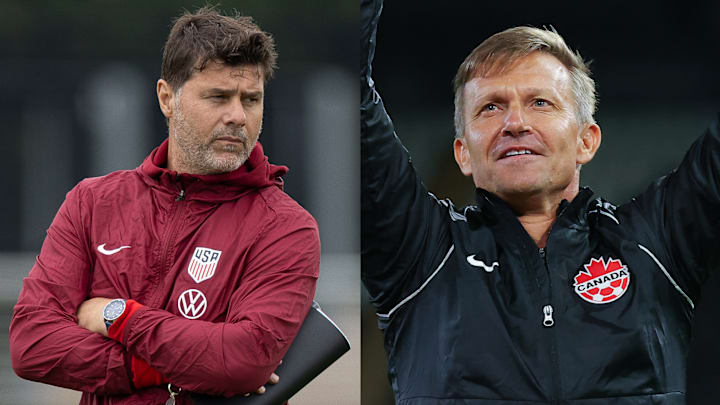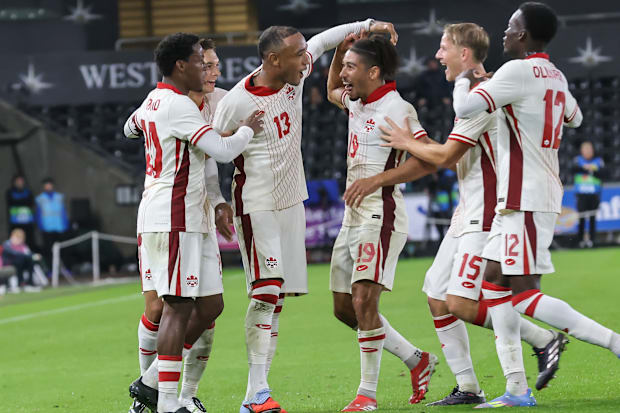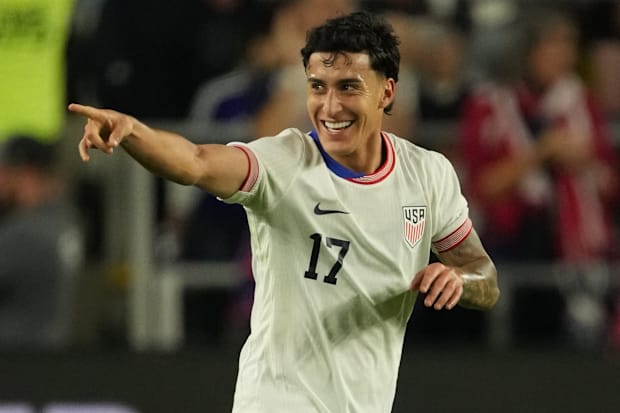USMNT and Canada Take Dramatically Different Paths as 2026 World Cup Countdown Intensifies

With the 2026 FIFA World Cup merely nine months away, the clock is running for Mauricio Pochettino and Jesse Marsch to finalize their preparations.
While both the United States and Canada share the identical objective—being tournament-ready for June 2026 on their home turf—their approaches have differed significantly, and both nations eye Mexico's pair of 2025 championships with a hint of envy.
The strategies, along with the rivalry between them, gain added significance with an American coach, Marsch, leading the Canadian team, while the U.S. carries expectations of their so-called "Golden Generation" under prestigious manager Pochettino.
Following just over twelve months in their positions, Marsch boasts a 12-7-3 record and has elevated Canada to their highest-ever FIFA ranking, whereas Pochettino holds a 10-6-1 record but has dropped six of eight matches against top 30 nations.
Canada appears to be executing a coherent strategy following consecutive victories over European teams on European soil for the first time ever, defeating Romania 3-0 and Wales 1-0. The USMNT, conversely, remains inconsistent, with a disappointing 2–0 defeat to South Korea followed by a 2–0 triumph over Japan featuring a significantly enhanced display.
However, how do these two nations compare, and will both reach peak form for 2026?
Squad Selections Reveal Much

"The process matters most. The process is paramount, whether we win or lose today, it's about the process," Pochettino remarked following the Japan victory. "It's about players genuinely trusting our methods, respecting us as we respect them."
For the USMNT, the focus has remained on testing different options and hasn't shifted as the World Cup draws near. In contrast, Canada's approach has been systematic, with an increasingly defined roster, as Marsch indicated the team views the final three 2025 windows as one unified objective.
"Our squad has become increasingly clear and stable in terms of overall pool selection," Marsch commented when announcing his roster, showing minimal changes from the Gold Cup team, with no key absences except injured players and Cyle Larin, who departed for his child's birth.
"This doesn't mean positions aren't competitive, but I believe in many spots, when our players are fit, we understand what each individual can contribute and his role. This will be crucial for our development toward next summer."
Simultaneously, Pochettino has treated each match as a distinct chance and brought new faces into the squad. He also kept core players like Juventus' Weston McKennie and Bayer Leverkusen's Malik Tillman, among others, at home.
"Nobody's position is guaranteed, and that's my message to everyone—you must compete, must fight because this is an open system," Pochettino stated regarding his roster. "To become truly competitive, we can't simply designate 13, 14, 15 players... these individuals will definitely reach the World Cup while others must battle for remaining spots."
Fighting for Positions

Throughout this window, Marsch advanced further, making only two alterations between Canada's matches and declaring that rotation for rotation's sake has concluded. Pochettino, however, continued implementing substantial changes.
"We're shifting toward players needing to earn playing time moving forward, as this is the national team, and that's how it should operate," Marsch explained. "We've developed numerous players within our system and provided many with valuable experience.
"We're progressing excellently. The responsibility each player recognizes he must shoulder for himself and the team is exceptionally high."
Meanwhile, Pochettino suggested that fringe players who performed well could contend for World Cup selection, specifically highlighting Club América striker Alejandro Zendejas, who debuted under the manager during this camp.
"He's competing for a World Cup roster spot," Pochettino said about Zendejas, further emphasizing that no player has secured their position. "We're targeting World Cup victory...I can't depend solely on veteran players... I need young talents to emerge and gain experience while raising our standards."
Simultaneously, the positions players compete for remain unclear on the USMNT side, as they adopted a 3-5-2 formation against Japan, Pochettino's first tactical modification, contrasting sharply with Canada's established 4-2-2-2 system.
"Having various plans is beneficial," Pochettino noted. "[Different] game approaches, alternative formations."
Optimal Lineups Uncertain
These issues naturally raise questions about potential starting elevens for either team, let alone complete World Cup squads.
"I'm somewhat puzzled, as the experimental phase appears ongoing, in my view," USMNT legend Landon Donovan commented on the Unfiltered Podcast with former USMNT goalkeeper Tim Howard. "To be fair to Pochettino, numerous injuries and circumstances prevent him from selecting certain players, but some decisions are genuinely perplexing."
The confusion may be more valid than ever following this window. The USMNT now possess a new formation that delivered victory, deployed without key personnel, as this evolution created a cloudier future, though potentially more attractive.
For Canada, however, clarity emerged. The foundation is established, and guaranteed starters throughout the lineup are becoming apparent, enabling chemistry development through the next four matches concluding 2025.
While the contrasts may be stark, time continues for both nations, with little indication of which approach proves correct. This will naturally be determined in June, as they commence in Toronto and Los Angeles, hoping to advance as close as possible to July 12's final.
Until then, the journey continues as the USMNT prepares for October friendlies against Ecuador and Australia, while Canada faces Australia and Colombia.
"Historically, when situations like this occur, teams achieved great success," Pochettino said regarding the team's form and Japan victory following the South Korea loss. "That's why I remain calm, sticking to our plan and moving forward."
